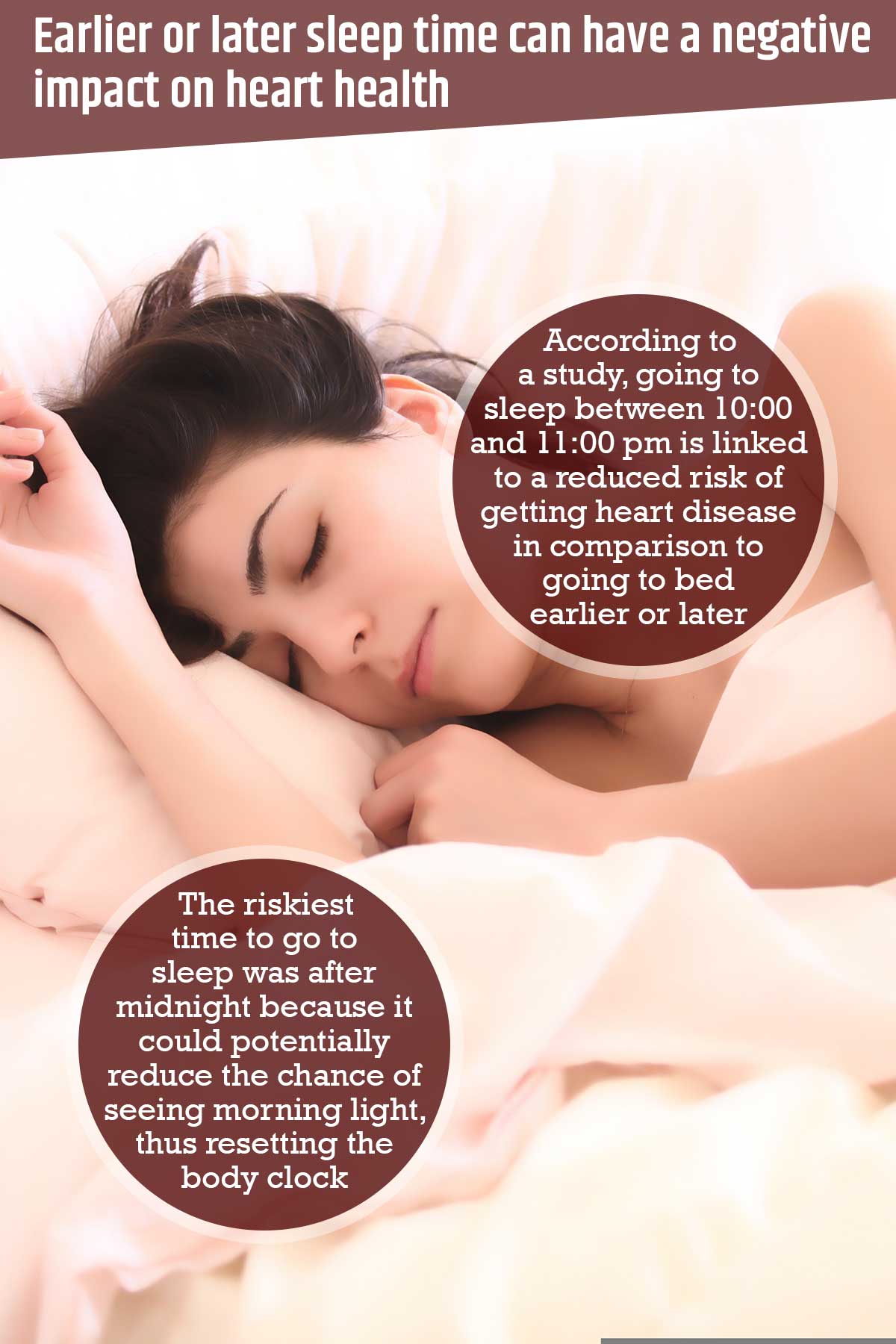According to a study, going to sleep between 10:00 and 11:00 pm is linked to a reduced risk of getting heart disease in comparison to going to bed earlier or later.1✅ JOURNAL REFERENCE
DOI: 10.1093/ehjdh/ztab088 The human body has a 24-hour internal clock known as circadian rhythm, which helps in regulating mental and physical function.
Although the study was not able to conclude causation, the results indicate that going to bed too early or late could be disrupting the body clock, with adverse cardiovascular health consequences.
Although a lot of analyses have looked into the connection between the duration of sleep and cardiovascular disease, the connection between the timing of sleep and heart disease hasn’t been researched. This study looked at the connection between the objectively measured time of going to sleep in a large sample of individuals, instead of self-reported.
The study included 88,026 people from the UK Biobank database who were recruited between 2006 and 2010 with an average age of 61 years, between 43 and 79 years.
Data on time of going to sleep and awakening time were compiled over 7 days making use of a wrist-worn accelerometer. Individuals completed lifestyle, demographic, physical, and health questionnaires and assessments.
They were then followed up for a new cardiovascular disease diagnosis, which was classified as heart failure, a heart attack, stroke, transient ischemic attack, and chronic ischemic heart disease.
3,172 individuals developed cardiovascular disease throughout an average follow-up of 5.7 years. The occurrence was highest in individuals who went to sleep at midnight or later and lowest in individuals who went to sleep from 10:00 to 10:59 pm.
The connection between the time going to sleep and cardiovascular events was analyzed after adjusting for socioeconomic status, sex, age, sleep duration, smoking status, self-reported early bird or night owl, sleep irregularity classified as varied times of going to sleep and awakening, BMI, blood pressure, diabetes, and blood cholesterol.
In comparison to going to sleep from 10:00 to 10:59 pm, there was a 25% increased risk of cardiovascular disease with going to sleep at midnight or later, a 12% higher risk for going to sleep from11:00 to 11:59 pm, and a 24% increased risk for going to sleep asleep before 10:00 pm.
The connection with increased cardiovascular risk was stronger in women in a further analysis by sex, with only going to sleep before 10:00 pm being significant in men.
The study suggests that the optimal time to go to sleep is at a specific point in the 24-hour cycle of the body and deviations can be harmful to health. The riskiest time to go to sleep was after midnight because it could potentially reduce the chance of seeing morning light, thus resetting the body clock.
The reason for the stronger association between time of going to sleep and cardiovascular disease in women that was seen in the study isn’t clear. It could be that there is a difference between the sexes in how the endocrine system reacts to a circadian rhythm disruption.
Or, the older age of individuals could be a confounding factor given that cardiovascular risk for women increases post-menopause, which means there could actually be no difference in the strength of the association between men and women.
Although the results don’t show causality, the time going to sleep has emerged as a potential risk factor for cardiac health independent of sleep characteristics and other risk factors.



